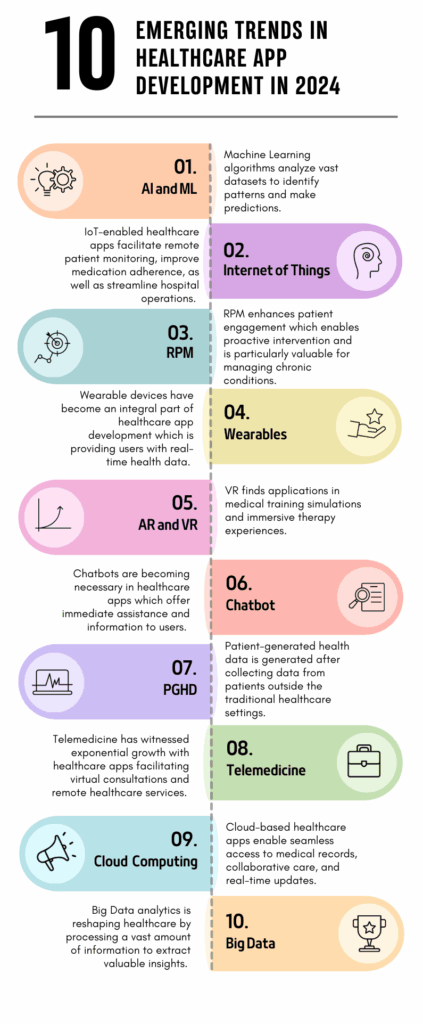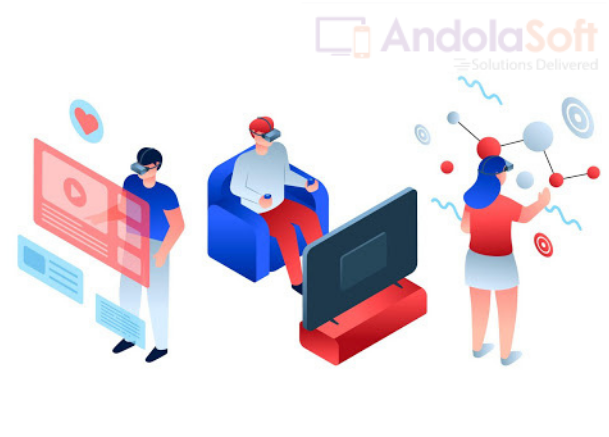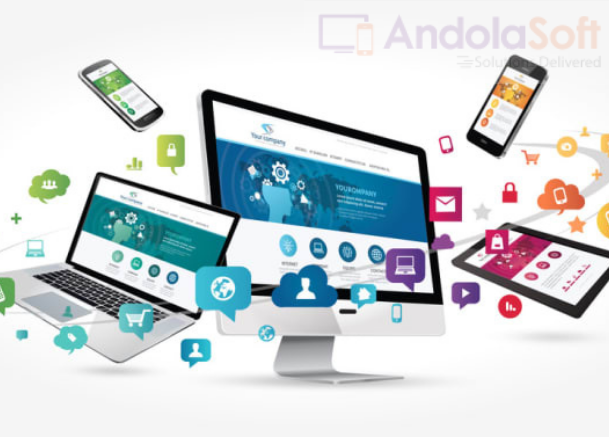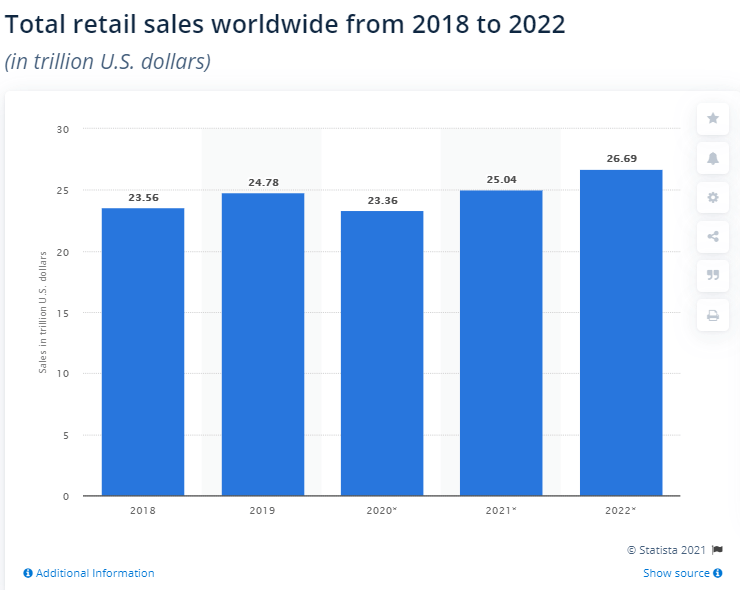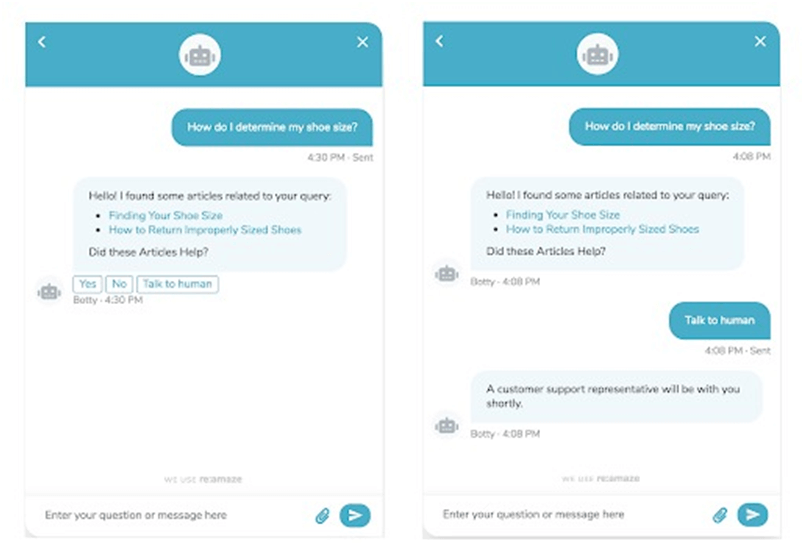The healthcare sector has witnessed a significant development in recent years in terms of technology. During the COVID-19 pandemic the world learned that the medical industry needs healthcare app to evolve technologically to provide adequate care to all healthcare users.
Although there has been a significant increase in healthcare technologies, it’s more important to implement these technologies to make it accessible to the masses.
The development of mobile apps for the healthcare sector still continues to be crucial for industry’s revolution in 2024.
In this blog we are going to explore the emerging trends in healthcare that will revolutionize the way businesses provide healthcare facilities.
Healthcare app development services need to implement these trends to cater to the changing demands of the healthcare sector.
Top Healthcare App Market Trends in 2024
- The global healthcare analytics market size was valued at USD 35.3 billion as of 2022.
- The expected CAGR or Compound Annual Growth Rate of healthcare is over 21% from 2023 to 2030.
- The largest market share of healthcare was held by life science companies which accounted for 46.5%.
- The healthcare industry is expected to register the fastest growth rate at the rate of 26% per year.
- The global telemedicine market was an estimated $104.44 billion in 2021.
- The telemedicine market is projected to rise to $272.76 billion in 2027.
- It is expected to grow at the compound annual growth rate (CAGR) of 20.7% over the year 2023-2028.
Let’s Explore the Top 10 Trends in Healthcare Application Development in 2023-2024.
1. Machine Learning (ML) and Artificial Intelligence (AI):
Machine learning and Artificial Intelligence are revolutionizing healthcare app development which provides features such as predictive analytics, personalized treatment plans, and data-driven decision-making.
Never miss an update from us. Join 10,000+ marketers and leaders.
ML algorithms analyze vast datasets to identify patterns and make predictions.
On the other hand, AI-powered apps are enhancing diagnostics, automating administrative tasks, and providing intelligent virtual health assistants.
2. Internet of Things (IoT):
The internet of things plays a pivotal role in healthcare, connecting devices to gather real-time data.
IoT-enabled healthcare apps facilitate remote patient monitoring, improve medication adherence, as well as streamline hospital operations.
Starting from smart wearable to connected medical devices, IoT enhances data accuracy which allows healthcare providers to make informed decisions and deliver personalized care.
3. Remote Patient Monitoring (RPM):
Remote patient monitoring (RPM) is a game-changer in healthcare app development.
The process involves the use of technology to collect and transmit patient data to healthcare professionals, therefore allowing for continuous monitoring of vital signs and health metrics.
RPM enhances patient engagement which enables proactive intervention and is particularly valuable for managing chronic conditions.
4. Wearable Devices:
Wearable devices have become an integral part of healthcare app development which is providing users with real-time health data.
These devices, including smartwatches and fitness trackers seamlessly integrate with various healthcare apps to monitor physical activity, sleep patterns and vital signs.
These wearable devices empower individuals to take control of their health and provide valuable insights for healthcare professionals.
5. Augmented Reality (AR) and Virtual Reality (VR):
AR and VR technologies are transforming healthcare app experiences. Especially in the field of surgery such as in surgical planning, AR can assist with detailed 3D models which enhances precision.
VR finds applications in medical training simulations and immersive therapy experiences.
It can help improve diagnostics, enhance training and contribute to a more interactive and engaging patient experience.
6. Chatbot:
Chatbots are becoming necessary in healthcare apps which offer immediate assistance and information to users.
It can be programmed to schedule appointments, set reminders, and offer basic medical advice. It can enhance patient engagement and reduce administrative workload to ensure time communication between patients and healthcare providers.
7. Patient-Generated Health Data (PGHD):
Patient-generated health data is generated after collecting data from patients outside the traditional healthcare settings.
These apps leverage PGHD to derive a comprehensive view of the patient’s health.
This data includes information from wearables, tracking devices, and various surveys thereby creating a personalized treatment plan and improving clinical decision making.
8. Telemedicine:
Telemedicine has witnessed exponential growth with healthcare apps facilitating virtual consultations and remote healthcare services.
Technologies such as video conferencing, secure messaging, and remote diagnostics provide patients to access medical care from the comfort of their homes.
It increases healthcare accessibility in the remotest areas and makes the work of healthcare facilities much simpler.
9. Cloud Computing:
Cloud computing is the primary enabler for healthcare app development, which provides secure storage and efficient data processing.
Cloud-based healthcare apps enable seamless access to medical records, collaborative care, and real-time updates.
Cloud computing enhances data security, accessibility and overall system performance.
10. Big Data:
Big Data analytics is reshaping healthcare by processing a vast amount of information to extract valuable insights.
Are you looking for a Healthcare App developer
In healthcare app development, Big Data is typically used in large scale applications such as population health management, predictive modeling, and personalized medicine.
It enables healthcare professionals to identify trends, make data-driven decisions and improve patient outcomes.
Conclusion
As we embark on the journey of healthcare digitization in 2024, these trends promise to shape the future where technology enhances accessibility.
It improves patient outcomes and revolutionizes the way we perceive and engage with healthcare facilities.
Embark on the healthcare journey of 2024, these trends promise to shape a future where technology enhances accessibility, improves patient outcomes, and revolutionizes the way we perceive and engage with healthcare.
Developers and healthcare professionals alike must embrace these trends to build a more connected, efficient, and patient-centric healthcare ecosystem.
The future of healthcare app is bright, and the potential for positive impact on global health is limitless.

